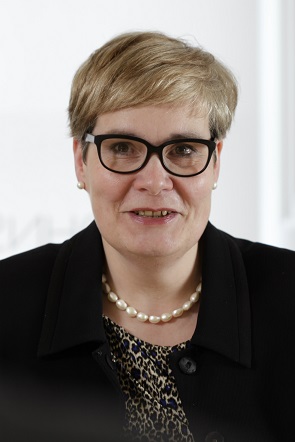Susie Walker CA: Head of Tax at Johnston Carmichael

Susie Walker CA, an ICAS Tax Board member and committee member of Edinburgh Women in Tax, tells us about tax planning strategies and why tax professionals should go to meet clients in person.
What do you consider to be the most important element of a tax planning strategy?
The most important element for me is for a board or indeed a CA firm to understand the current tax environment and to be aligned and united on what is acceptable and unacceptable tax planning.
Having also lived through the letter v spirit of law debate, Google and Starbucks, and case law evolution, all of us as professionals have a clear duty to conduct ourselves responsibly - we need to clearly define the lines from the very top of our businesses.

You are an active participant on the ICAS Tax Board – why do you contribute and what does Johnston Carmichael gain?
My contribution to the Tax Board reflects the likely impact for our client base of legislative or procedural changes coming down the line from HMRC/ Government Policy. We can help shape and influence.
It is one of the few routes in to HMRC where we as a firm get face to face time with senior HMRC executives and gain insight to what their strategy is. Whilst we get listened to it is often the case that nothing can be done, but at least we can hear their side too.
How has the Scottish Tax regime changes impacted on how you advise your clients?
As a firm we complete over 12,000 personal tax returns and the impact of being a Scottish Tax Payer is now affecting a lot of our clients.
We explain the impact to them and there’s a lot more interest in setting up companies, and as the differential has grown there are a lot more clients weighing up the overall commercial costs and benefits of incorporation. For LBTT, again it’s another tax differential that we explain to our clients.
What is the first fundamental thing a tax professional should consider when trying to understand a client’s business and how to optimise their tax position?
Understanding the commercial drivers and how the business ticks is paramount. Any tax professional who sits in an office all day and who doesn’t get out to hear about their client businesses should set a target to visit a few.
Listening to clients talk about what they are up to and what the business objectives are is where we can add value, by ensuring that tax enhances a business decision before it is made.
ICAS is running the ‘Proud to be a CA’ campaign – can you tell us why you are proud to be a CA?
I’ve always been really proud to say I’m a CA, primarily because it has always been a high bar to get through the exams and identifies us as highly trained, professional and capable individuals.
For me it is a qualification that opens doors to opportunities around the globe and in every type of enterprise; you can be what you want to be.
Would you recommend being a member of an ICAS committee, and why?
Yes, it is a fantastic way of building your network, hearing what others are doing, working as a committee and playing at least a small part in shaping the future of UK tax policy and practice.
